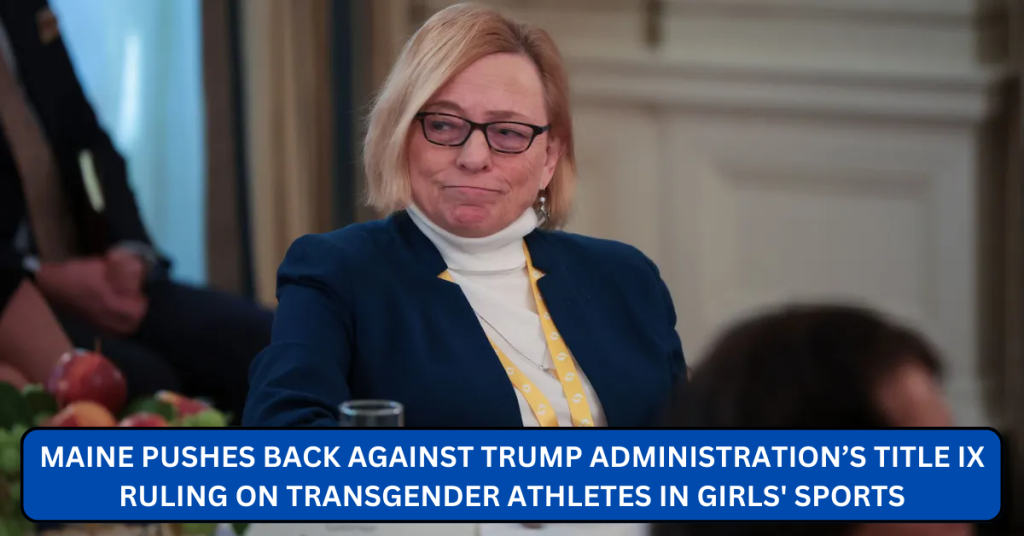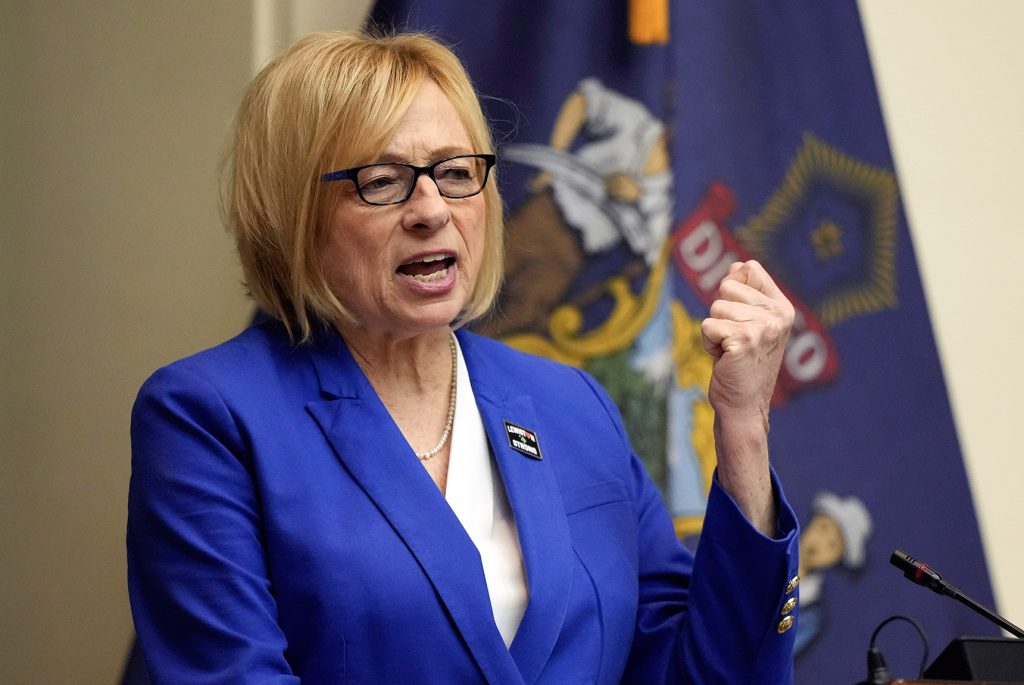
Maine officials and school sports organizations are pushing back against a declaration from the Trump administration, which alleges that the state violated Title IX by permitting transgender girls to compete in female sports. The U.S. Department of Health and Human Services (HHS) has issued a warning to Maine, stating that its policy allowing transgender athletes in girls’ sports is discriminatory under federal law, potentially putting federal funding at risk.
Background of the Dispute
On February 2025, former President Donald Trump signed Executive Order 14201, titled “Keeping Men Out of Women’s Sports,” aimed at barring transgender athletes from competing on girls’ and women’s sports teams. The order mandates that educational institutions allowing transgender participation in female sports could lose federal funding for violating Title IX, the federal law prohibiting sex-based discrimination in education programs that receive federal aid.
Maine’s policy, however, aligns with the state’s Human Rights Act, which protects gender identity in public accommodations, including school sports. The Maine Principals’ Association (MPA), which oversees high school athletics, has long permitted transgender athletes to participate in accordance with their gender identity, following similar guidelines used by various state athletic organizations.
Trump Administration’s Warning and Governor Mills’ Response

The federal investigation, led by HHS, found that Maine’s policy allegedly violates Title IX by allowing transgender girls to compete in female sports. HHS has given the Maine Department of Education, the MPA, and Greely High School a ten-day deadline to comply with the executive order. The state faces potential consequences, including the return of nearly $187,000 in federal funds provided by the Centers for Disease Control and Prevention (CDC) and the Administration for Children and Families.
Governor Janet Mills responded strongly to the federal mandate, indicating that Maine intends to challenge the ruling. During a heated exchange with Trump at a White House event, Mills defended the state’s stance, asserting that Maine was upholding both state and federal law. When Trump threatened to revoke federal education funding, Mills reportedly responded, “See you in court.”
The MPA has also contested the claim, arguing that it does not receive federal funding directly, making it exempt from Title IX enforcement by HHS. The organization maintains that its policies are in line with state law and are designed to ensure fairness and inclusivity for all student-athletes.
Legal and Political Implications
Maine’s defiance of the federal directive could result in legal action from the U.S. Department of Justice if the state refuses to change its policies. Legal experts predict that the dispute could set a national precedent regarding the balance between state laws protecting transgender rights and federal interpretations of Title IX.
Meanwhile, political tensions in the state have escalated. State Representative Laurel Libby, who has been a vocal opponent of allowing transgender athletes in girls’ sports, was censured and barred from voting on the House floor after making controversial remarks on social media. Libby has since filed a lawsuit against House Speaker Ryan Fecteau and House Clerk Robert Hunt, claiming that her First Amendment rights were violated and that the censure prevents her from representing her constituents.
Potential Consequences for Schools and Athletes
If the federal government enforces funding cuts, Maine schools relying on federal aid for sports programs and other educational services could face financial strain. This would impact not only transgender athletes but also the broader student body, as schools may need to reduce funding for extracurricular programs.
The conflict also raises questions about how Title IX will be enforced in other states with similar policies. States such as California, New York, and Washington have enacted laws that explicitly protect transgender athletes, potentially setting the stage for broader legal battles across the country.
What Comes Next?

With the ten-day compliance deadline approaching, Maine officials must decide whether to alter their policies or prepare for a legal showdown with the federal government. Civil rights organizations and LGBTQ+ advocacy groups, including the American Civil Liberties Union (ACLU) of Maine, have already voiced their support for the state’s position, indicating they may provide legal assistance if the matter goes to court.
As the legal and political debate unfolds, Maine remains at the center of a larger national conversation about transgender rights in sports and the interpretation of federal anti-discrimination laws.
For more information on Title IX policies and federal education regulations, visit:
- U.S. Department of Education: www.ed.gov
- U.S. Department of Health & Human Services: www.hhs.gov
- Maine Department of Education: www.maine.gov/doe
- Maine Human Rights Commission: www.maine.gov/mhrc
Conclusion
Maine’s response to the Trump administration’s directive highlights a deep divide in how states and the federal government interpret Title IX and the rights of transgender athletes. Whether through legal challenges or policy adjustments, the outcome of this dispute will have far-reaching implications for schools, student-athletes, and the broader landscape of gender rights in sports.



